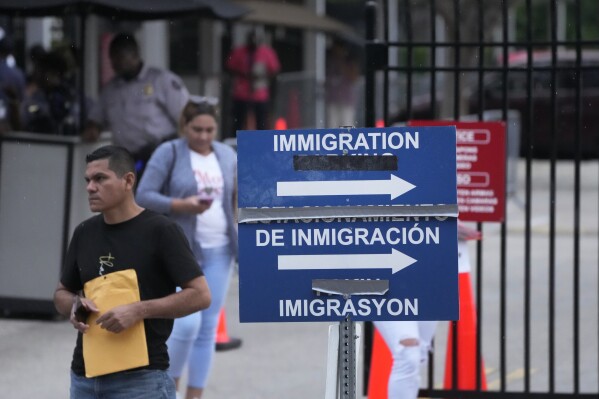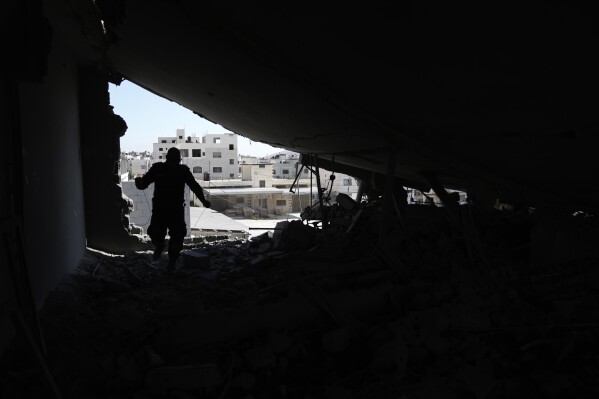Iraq water crisis could have regional consequences, UN human rights chief warns
BAGHDAD (AP) — The United Nations’ human rights chief on Wednesday warned that Iraq’s water crisis could affect other countries in the region.
Severe water shortages in Iraq because of climate change and government mismanagement have destroyed wheat and fruit harvests, and killed off fish and livestock. Humanitarian organizations have warned for years that drought and mismanagement could deprive millions of people of water from the Euphrates and Tigris Rivers, which also run through neighboring war-torn Syria.
U.N. High Commissioner for Human Rights Volker Türk made the comments at a news conference in Baghdad following a four-day visit to the Iraqi capital, the oil-rich southern city of Basra and Irbil in the northern semi-autonomous Kurdish region.
Basra, where the mouth of the two rivers meet, has been hit hardest by the water crisis, turning areas once fertile into desert and forcing water purification systems to shut down because of rising salinity.
 Judge denies request to block Florida law making it a crime to drive people in the US illegally
Judge denies request to block Florida law making it a crime to drive people in the US illegally
 Judge rules that Southwest failed to follow his order in a flight attendant’s free-speech case
Judge rules that Southwest failed to follow his order in a flight attendant’s free-speech case
 Israel demolishes home of alleged Palestinian attacker, fueling West Bank tensions
Israel demolishes home of alleged Palestinian attacker, fueling West Bank tensions
“Just yesterday (Tuesday), the minister of water resources announced that water levels in Iraq are the lowest they have ever been,” Türk said. ”What is happening here is a window into a future that is now coming for other parts of the world.”
Türk said the country’s climate crisis derives from a “toxic mix” of global warming and drought, poor water management, violence and “oil industry excesses.” He spoke about decades of draining marshlands in the country’s south, saying restoration could be complicated, especially at a time of surging temperatures. He fears that this will worsen climate displacement and migration.
“Civil society actors spoke to me about the chronic pollution in Basra and the resulting health problems in the community, including high rates of cancer and other serious ailments,” the U.N. human rights chief said,
He slammed ongoing lawsuits against journalists and activists talking about the matter, saying it has impacted freedom of expression, and reports of violence and threats against environmental activists.
Türk held meetings with Iraqi government and judicial officials, most notably Prime Minister Mohammed Al-Sudani, and Speaker Mohammed Al-Halbousi. They discussed a handful of human rights issues, including the death penalty, overcrowding in prisons, and the need for strengthening human rights institutions in the country.
“I have also called on the authorities to declare an official moratorium on the use of the death penalty in Iraq — where more than 11,000 people remain on death row,” he said.
___
Kareem Chehayeb contributed to this report from Beirut.
Disclaimer: The copyright of this article belongs to the original author. Reposting this article is solely for the purpose of information dissemination and does not constitute any investment advice. If there is any infringement, please contact us immediately. We will make corrections or deletions as necessary. Thank you.



